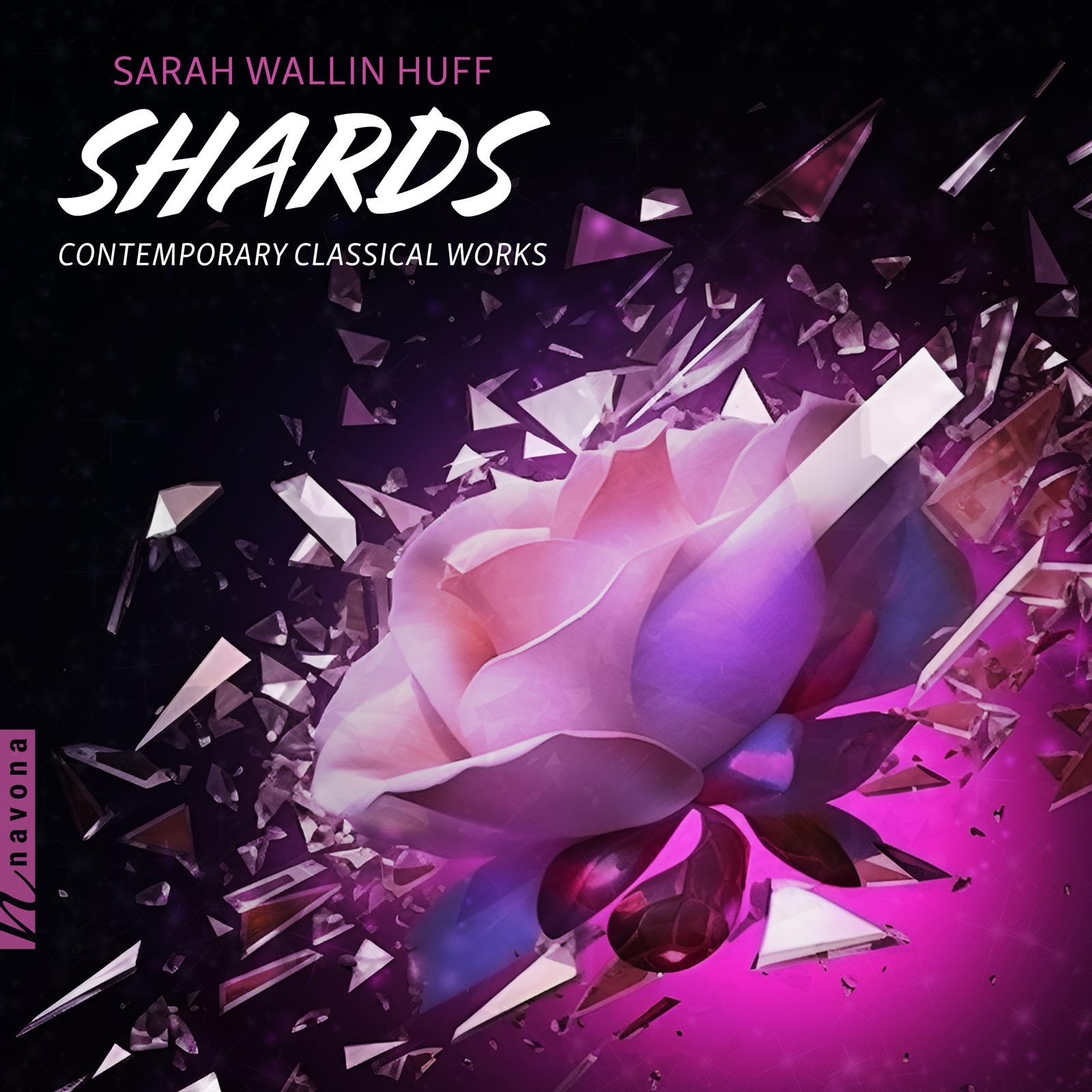Shards
Sarah Wallin Huff composer
Sarah Wallin Huff returns to Navona Records with SHARDS, a wide variety of compositions that explore life, love, death, and the philosophy and mysticism that make up the in-betweens. True to the unique identity of Wallin Huff’s admirable body of work, the compositions building SHARDS structure themselves around brilliantly original frameworks while also delivering a philosophical, thoughtful structure to the album. Wallin Huff sufficiently and spectacularly elaborates upon her identity as a self-described “stream-of-consciousness composer” in this contemplative and explorative journey, a comprehensive album sure to make waves with its mystical nature.
Listen
Stream/Buy
Choose your platform
Track Listing & Credits
| # | Title | Composer | Performer | |
|---|---|---|---|---|
| 01 | Ayre of Grievances | Sarah Wallin Huff | Mark Berger, viola; Julia Glenn, violin; Jessica Lizak, flute | 5:13 |
| 02 | DodecaFunky | Sarah Wallin Huff | Sarah Brady, flute; Yoko Hagino, piano | 5:07 |
| 03 | Of Roses and Lilies | Sarah Wallin Huff | Claire Fedoruk, soprano soloist; Lydia Wu, piano; Rachel Mellis, soprano recorder; Angela Wells, English horn; Women’s Chorus | Lauren Jorgensen, Kristina Valcarce, Brenda Carsey - soprano; Vanessa Alexis Gomez, Zineb Fikri, Niké St. Clair - alto | 6:46 |
| 04 | The Oracle | Sarah Wallin Huff | Agnes Schwartz, violin; Pola Benke, cello; Elizabeth LaCoste, flute & piccolo; Ryan Glass, clarinet; Masako Klassen, piano | 13:32 |
| 05 | Wabi-Sabi: I. Emergence | Sarah Wallin Huff | Juventas New Music Ensemble | Oliver Caplan, artistic director; Ryan Shannon, violin 1; Benjamin Carson, Violin 2; Lu Yu, viola; Minjin Chung, cello | 4:43 |
| 06 | Wabi-Sabi: II. Evolution | Sarah Wallin Huff | Juventas New Music Ensemble | Oliver Caplan, artistic director; Ryan Shannon, violin 1; Benjamin Carson, Violin 2; Lu Yu, viola; Minjin Chung, cello | 2:55 |
| 07 | Wabi-Sabi: III. Entropy | Sarah Wallin Huff | Juventas New Music Ensemble | Oliver Caplan, artistic director; Ryan Shannon, violin 1; Benjamin Carson, Violin 2; Lu Yu, viola; Minjin Chung, cello | 4:59 |
| 08 | Nevermore: I. The Raven | Sarah Wallin Huff | Charlotte Goode, viola; Yoko Hagino, piano | 4:14 |
| 09 | Nevermore: II. Annabel Lee | Sarah Wallin Huff | Charlotte Goode, viola; Yoko Hagino, piano | 3:19 |
| 10 | Nevermore: III. The Tell-Tale Heart | Sarah Wallin Huff | Charlotte Goode, viola; Yoko Hagino, piano | 4:03 |
| 11 | The Dark Glass Sinfonia (We See Through a Glass Darkly) | Sarah Wallin Huff | Janáček Philharmonic Ostrava | Jiří Petrdlík, conductor | 7:40 |
Ayre of Grievances
Recorded February 7, 2023 at Shalin Liu Performance Center in Rockport MA
Session Producer & Engineer Brad Michel
Session Assistant Engineer Lucas Paquette
Editing & Mixing Brad Michel
DodecaFunky
Recorded September 29, 2020 at Futura Productions in Roslindale MA
Session Producer Brad Michel
Session Engineer John Weston
Session Assistant Engineer Jacob Steingart
Editing & Mixing Brad Michel
Of Roses and Lilies
Recorded August 7, 2021, March 5 & April 23, 2022 at Azusa Pacific University in Azusa CA
Session Producer & Engineer Sarah Wallin Huff
Session Assistant Engineer Simeon Goode
The Oracle
Recorded October 27, 2019 at Barefoot Recording Studio in Hollywood CA
Session Producer Sarah Wallin Huff
Session Engineer David Martinez
Wabi-Sabi, Nevermore
Recorded July 11 & 13, 2022 at Shalin Liu Performance Center in Rockport MA
Session Producer Lucas Paquette
Session Engineer Tom Stephenson
Editing & Mixing Lucas Paquette
The Dark Glass Sinfonia
Recorded February 26, 2019 at Dům Kultury in Ostrava, Czech Republic
Session Producer Jan Košulič
Session Co-producer Bob Lord
Session Engineer Aleš Dvořák
Session Assistant Engineer Maroš Hlatký
Editing & Mixing Lucas Paquette
Mastering Melanie Montgomery
Executive Producer Bob Lord
A&R Director Brandon MacNeil
A&R Danielle Sullivan
VP of Production Jan Košulič
Audio Director Lucas Paquette
Production Director Levi Brown
Production Manager Martina Watzková
VP, Design & Marketing Brett Picknell
Art Director Ryan Harrison
Design Morgan Hauber
Publicity Patrick Niland
Artist Information

Sarah Wallin Huff
Sarah Wallin Huff is a music lecturer at California Polytechnic University of Pomona, teaching “History of Technology in Music,” for which she published an original textbook with Great River Learning in 2019. She received her M.A. in Music Composition at Claremont Graduate University in 2008, and was the Professor of Composition and Advanced Theory — as well as conductor of the Chamber Ensemble — at The Master’s University in Santa Clarita from 2012-2016.
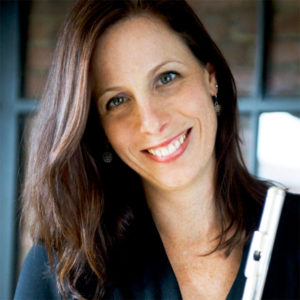
Sarah Brady
Called “enchanting” by the Boston Globe, flutist Sarah Brady is sought after across the country as a soloist, chamber musician, and master teacher. An avid promoter of new music, she has premiered and recorded new music from many of today’s top composers. Recent projects have included premieres of new solo flute and electronic music from Elena Ruehr, Andy Vores, Marti Epstein, Reinaldo Moya and John Mallia, and Curtis Hughes, as well as music for flute and strings from Marcos Balter, Nicholas Vines, and Johnathan Bailey Holland. Her solo, chamber, and over 50 orchestral recordings can be heard on the Albany, Naxos, Oxingale, Cantaloupe and BMOP/Sound music labels. As a leading interpreter of contemporary music, she was invited to read and record new music commissioned by Yo Yo Ma for his Silk Road Project at Tanglewood.
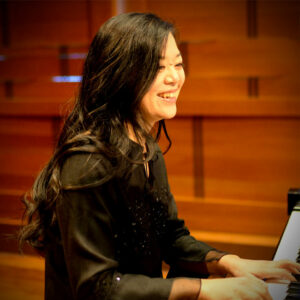
Yoko Hagino
Yoko Hagino was born and raised in Japan, where she began her piano studies at the age of 4. As a child, she performed her own compositions, which took her to Europe and the United States, including performances as a concert soloist with the Czech Symphony, the University of Southern California Symphony, Kyoto City Symphony, and Ensemble Orchestra Kanazawa. Hagino has appeared as a soloist with Osaka Century Orchestra, UMass Boston Chamber Orchestra, Key West Symphony Orchestra, White Rabbit Sinfonietta, and has also performed various piano recitals ranging from the music of Bach to contemporary repertoire. Hagino is a prize winner of the Steinway Society Piano Competition, the First International Chamber Music Competition, the All-Japan Selective Competition of the International Mozart Competition, and Chamber Music Competition of Japan.
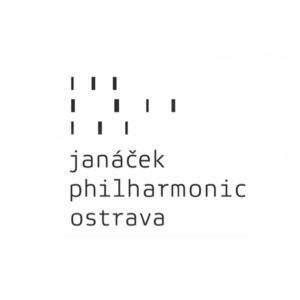
Janáček Philharmonic Ostrava
The Janáček Philharmonic is a world-class symphony orchestra based in Ostrava, Czech Republic and an emerging figure on the international performance scene. With over 100 top-level musicians, the orchestra aims to introduce unique, quality repertoire while showcasing their own recognizable sound.
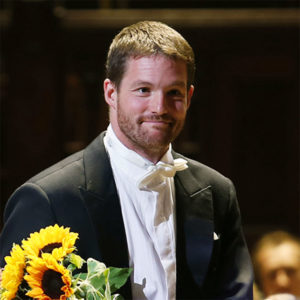
Jiří Petrdlík
Jiří Petrdlík (b. 1977) is appreciated as one of the most respectable conductors of his generation. He studied piano, trombone, and conducting — 1995–2000 at Prague Conservatory, and 2000–2005 at Academy of Performing Arts Prague — with Hynek Farkač, Miroslav Košler, Miriam Němcová, Radomil Eliška, and Tomáš Koutník, and took part in the masterclasses of the New York Philharmonic Principal Conductor Kurt Masur and the BBC Philharmonic Principal Conductor Jiří Bělohlávek. Petrdlík also successfully took part in several competitions, including the Donatella Flick Conductor Competition in London.
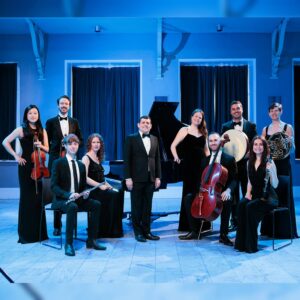
Juventas New Music Ensemble
Juventas New Music Ensemble is a contemporary chamber group with a special focus on emerging voices. Juventas shares classical music as a vibrant, living art form. They bring audiences music from a diverse array of composers that live in today’s world and respond to our time. Since its founding in 2005, Juventas has performed the music of more than 300 living composers. The ensemble has earned a reputation as a curator with a keen eye for new talent. It opens doors for composers with top-notch professional performances that present their work in the best possible light.
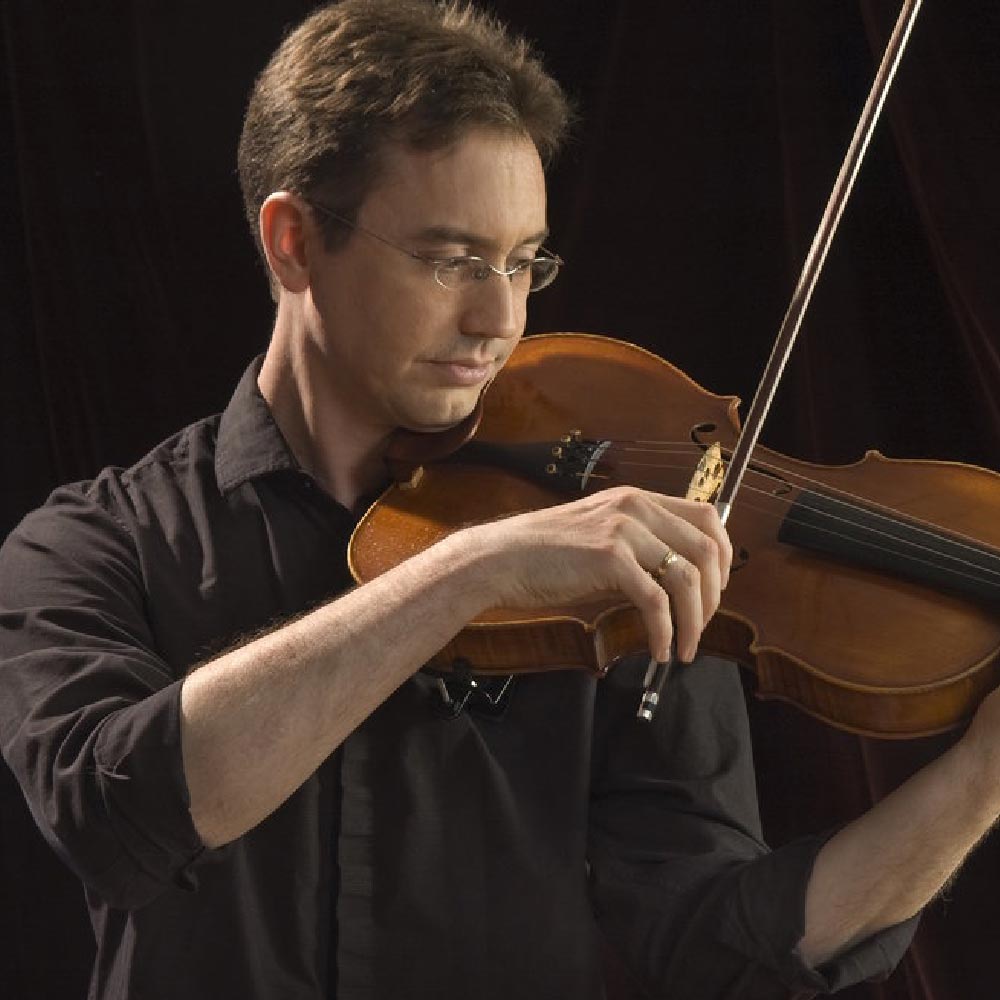
Mark Berger
Mark Berger joined the Lydian String Quartet as violist in 2014 and is associate professor of the practice at Brandeis University. In addition to his work with the quartet, Berger frequently performs with many of Boston’s finest orchestras and chamber ensembles including the Boston Symphony Orchestra, Boston Pops, Emmanuel Music, and the Boston Modern Orchestra Project, Worcester Chamber Music Society, and Music at Eden’s Edge. He has recently appeared as a guest artist with the Boston Symphony Chamber Players, Boston Musica Viva, and Radius Ensemble. Strongly devoted to the performance of new music, Berger has performed with many of Boston’s new music ensembles including Sound Icon, Boston Musica Viva, Dinosaur Annex, Ludovico Ensemble, and ALEA III. In the summers, Berger performs at the Newport Festival and is string chamber music coordinator at the Boston University Tanglewood Institute.
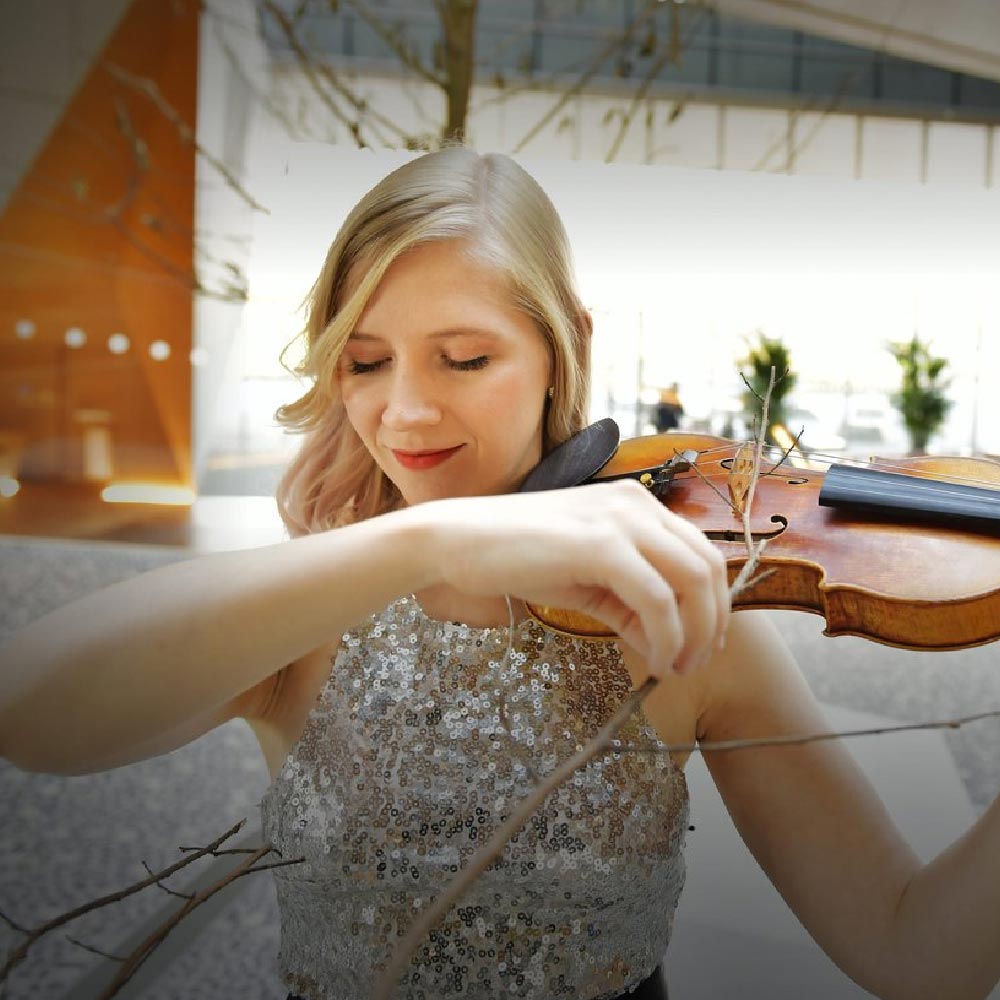
Julia Glenn
Boston native Julia Glenn has been hailed as “remarkable,” “gripping,” and “a brilliant soloist” by the New York Times and performs internationally on modern and baroque violins. She recently joined the Lydian Quartet after teaching for three years at the Tianjin Juilliard School, where she served as violin faculty and was a member of the Tianjin Juilliard Ensemble.
Jessica Lizak
Dr. Jessica Lizak has rapidly established herself as one of Boston’s most versatile young flutists. The Boston Music Intelligencer has described her performances as full of “youthful energy and rhythmic drive,” as well as possessing “light and free precision…a nearly jazz-like casualness.” She is principal flute of the Atlantic Symphony and Marsh Chapel Collegium, as well as section flute of the Orchestra of Indian Hill, all of which she has been a concert soloist. She also performs with the Boston Pops Orchestra, Portland Symphony, Back Bay Chorale, Boston Modern Orchestra Project, Odyssey Opera, Opera Boston, Masterworks Chorale, Pro Arte Chamber Orchestra, Collage New Music, and Zamir Chorale, among others. Nationally, she has joined the Gidon Kremer’s Kremerata Baltica, New World Symphony in Miami Beach, and the Albany Symphony (NY).
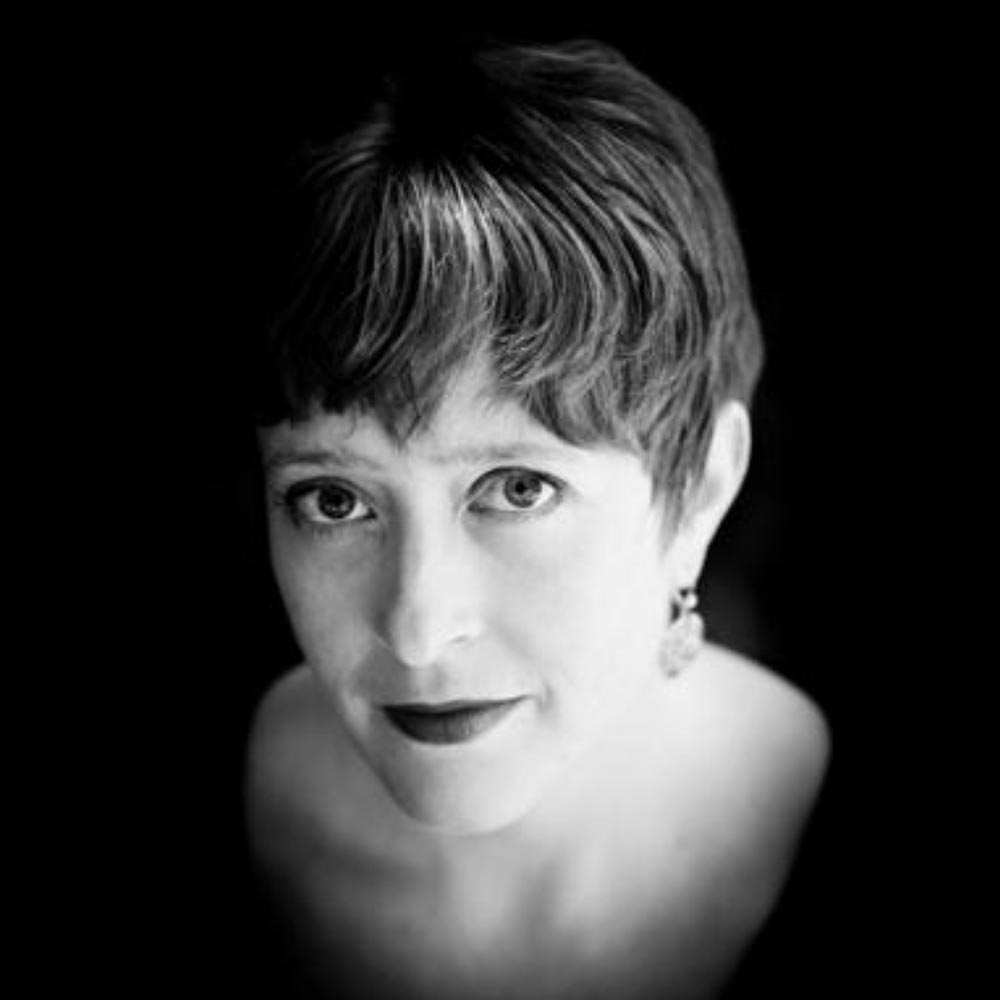
Claire Fedoruk
Dr. Claire Fedoruk (BM, Pacific Lutheran University, MM, Eastman School of Music, DMA, University of Southern California) is a scholar-practitioner whose research is focused on vocal music of the Renaissance and twenty-first centuries. Dr. Fedoruk’s passion is the intersection of scholarship and performance and its impact on those who practice both. A professional soprano in the Los Angeles metropolitan area, Dr. Fedoruk has collaborated as a soloist and ensemble artist with the Los Angeles Master Chorale, the Los Angeles Philharmonic, and is a Grammy winner for her contribution to the Los Angeles Chamber Singers Padilla: Sun of Justice (2005) recording. She is active as a recording artist and can be heard on three dozen film soundtracks, including solo cues in Heaven is For Real (2014) and X-Men: Days of Future Past (2014), as well as one the new 100 Years Disney Logo (2022) as well as solo and small ensemble work in the following recordings: Steve Reich: You Are Variations (2004), and Daniel Variations (2006), Nico Muhly: A Good Understanding (2010), David Lang: the national anthems – (2014) and Sarah Wallin-Huff: Shards (2023).
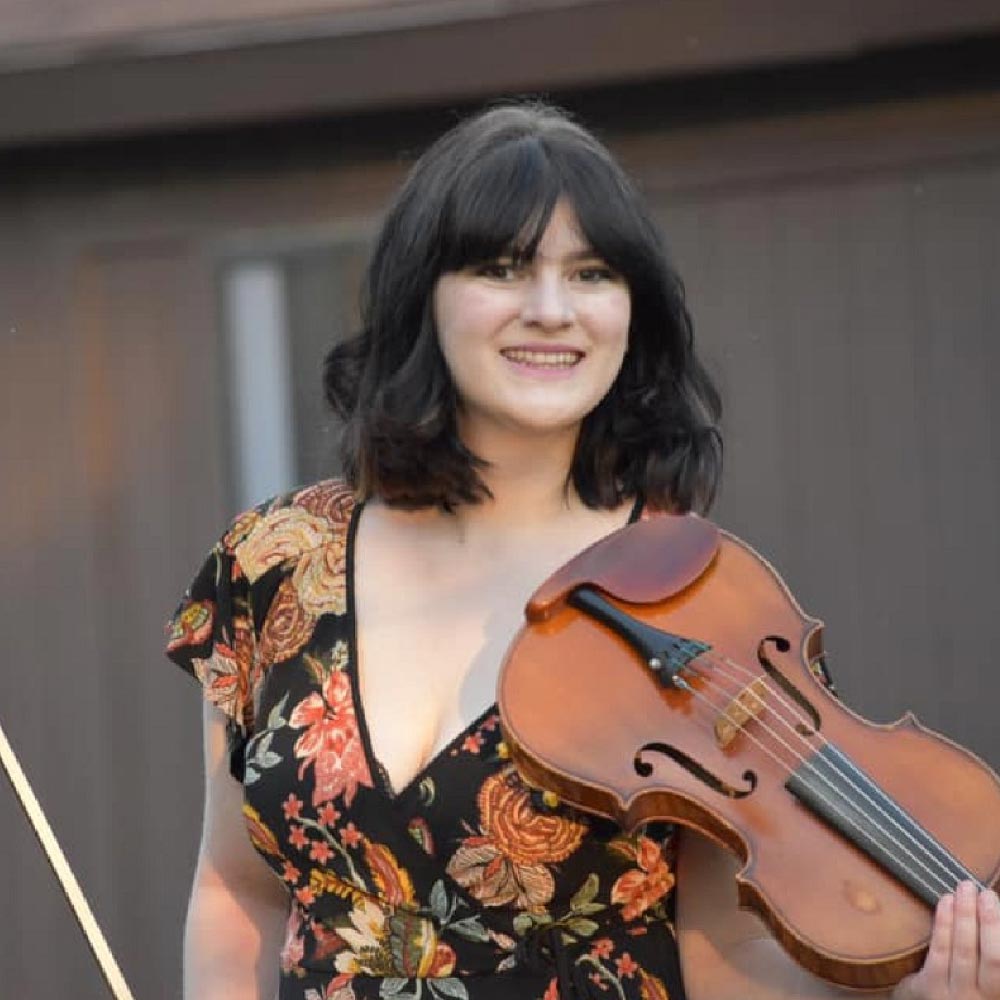
Charlotte Goode
Charlotte Goode is a violist who has been praised for her passion, drive, and deep musicality. Goode graduated from Azusa Pacific University with a Bachelors of Music in Viola Performance on a generous academic and musical scholarship and is currently a student of Gina Coletti and Diana Wade. Previously, Goode was a student of Lynn Grants and Jonathan Moerschel, and has performed in masterclasses with Gina Coletti, Ben Ullery, Karen Dreyfus, and Paul Coletti.
